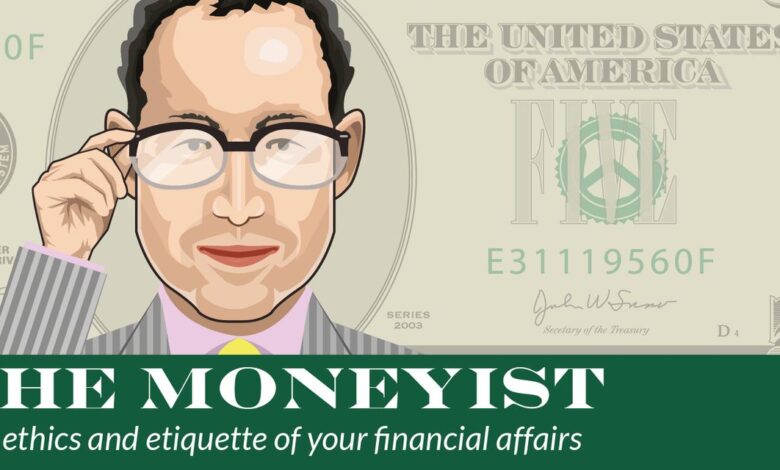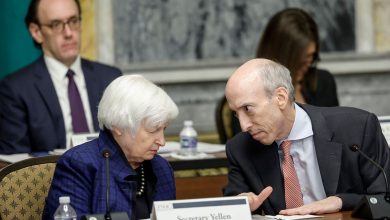‘I have $30,000 in my savings account’: I’m 56, unemployed and single. I invented products that will cost $20,000 to bring to market. Should I dip into my savings?

[ad_1]
Dear Quentin,
I am a 56-year-old divorced woman who has raised four children as a single parent. I made the decision at a young age to give birth to all of my children, and I was the sole provider for the family for over 20 years. Now, after my children are all grown, living their own lives, I’m left with no golden life to look forward to.
As you may imagine, the past 20-something years were nothing short of rough. I have $30,000 in my savings account, I am unemployed (and unemployable), and living incrementally off those savings. I have survived my years, not particularly because I am smart, but because I am very creative (I like to think).
I have been creating two products that require an investment of about $20,000 for patents and manufacturing costs. I truly believe that these items will sell well in their marketplaces, and set me up for success. However, I am so afraid to use that money because that is what I live on. What would your advice be on this? Please help me.
All of my life, I’ve missed out on every opportunity that came my way. I don’t want to be the person who never tried. At my age, I believe it would be devastating to just grow old and die, not having succeeded at something at least once, but if you think it is an unintelligent choice to use my life’s piggy bank, per se, I want to know it.
Divorcée & Inventor
Dear Divorcée & Inventor,
You have raised four children as a single parent. You are a winner.
Measuring your success in life should not be dependent on whether you get these patents off the ground. Nor should it be calculated by the money in your bank account. Being rich and famous is not a marker of success. The relationships you have in your life and your ability to be kind to other people are a good starting and finishing point. All the rest is garnish.
Your letter shows two sides of your self-esteem. You describe yourself as “unemployable” — something I doubt — and yet you also show great confidence and belief in your ability to turn these patents into a marketable product. I hope they work, and I commend you on your entrepreneurial spirit. But there’s a happier, steadier medium between these two beliefs.
There are other ways to raise money and trademark your intellectual property, if that is indeed required in this case. Finding a job would help you avoid dipping into your savings. It’s great that you have $30,000 saved, but this should also be treated as an emergency fund rather than a “last-chance saloon” for your patent ideas. Plus, $20,000 sounds like a very modest sum for what you have in mind.
Contact a patent attorney to find out how much it would cost. SCORE (Service Corp of Retired Executive) or the Small Business Administration’s Office of Small Business Development Centers can provide assistance with your business plan. There are over 1,000 federal grant programs you can explore. There is, of course, competition for these grants.
You could also find an angel investor for your business idea, but that will come with a cost (a percentage of your business for an agreed sum). That’s why people go on Shark Tank. Again, you can contact the SBA. After talking to a patent attorney, you could also reach out to friends and family, and/or crowdfunding sites like GoFundMe to tell your story, and raise funds.
I caution against putting money on a credit card, especially given that interest rates are so high and — crucially — you have no other source of income. For others who have a retirement account like a 401(k), think twice before raiding that, as there will be penalties — and if the product/business does not work out, there will be a big hole in your retirement savings too.
In the meantime, you can file for a provisional patent to protect your idea before you talk about it publicly. This book, “Patent It Yourself: Your Step-by-Step Guide to Filing at the U.S. Patent Office,” may also be helpful for you. But as James Yang, an attorney at OC Patent Lawyer in California points out, “For a higher-quality application, you should hire an experienced patent attorney. “
As one member of the Moneyist’s Facebook Group wrote about creating products: “You have to HUSTLE, sell them into stores, brand and market them, baby them through the whole process. If you can do this (project management, sales, supply-chain management, delivery, design) you can certainly work somewhere and are employable.
“Why not get a job that helps you develop these skills (working in a trade show/brand ambassador, delivery for a similar product, project manager) and save up the $20,000 to launch your products?” she added. “Even great ideas fail with the very best behind them, if you are serious about starting a company you need to get back into the working world first.”
Don’t hang all your dreams on one business idea. Life is so much bigger than that. Ultimately, you need a team. Talk to your children. Tell them about your financial situation. Ask them for their advice. Can they help you find a job? Can they provide you with financial assistance? Do they have insights into your business plan? You’re 56. You’ve achieved a lot in your life already.
Follow Quentin Fottrell on Twitter.
You can email The Moneyist with any financial and ethical questions related to coronavirus at qfottrell@marketwatch.com.
Check out the Moneyist private Facebook group, where we look for answers to life’s thorniest money issues. Readers write to me with all sorts of dilemmas. Post your questions, tell me what you want to know more about, or weigh in on the latest Moneyist columns.
The Moneyist regrets he cannot reply to questions individually.
More from Quentin Fottrell:
[ad_2]
Source link



